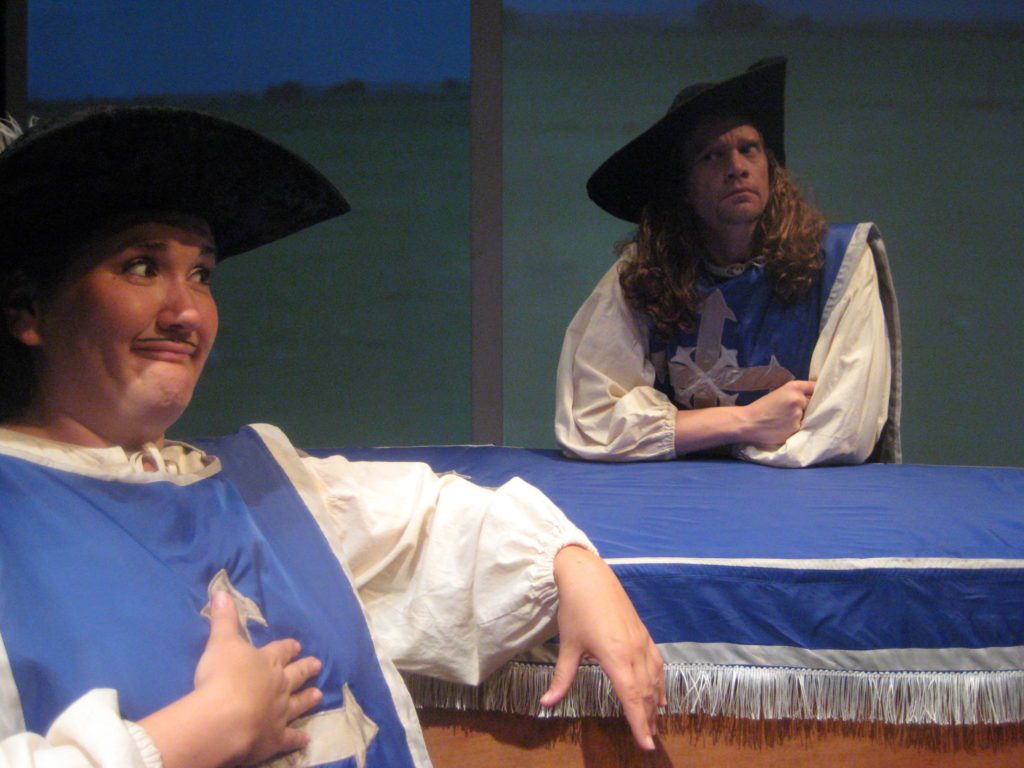The word multimedia is overused, basically meaningless and usually a letdown.
So let’s just call Buntport Theater’s new play, Musketeer, multifaceted. Or to streamline things: creative.
The ensemble company, which creates original work, adds to its usual Transformer sets and spot-on costumes a complement of expertly presented, thematically useful video.
As the company has frequently done, it started with a classic work, Alexandre Dumas’ The Three Musketeers. And if you know the title, you know enough to get by in this time-traveling oddity that takes a few facts and spins them with credulity-defying fiction.
The show opens to the tension-filled instrumentals of Marian the Librarian, and a video of rapid leafings through a book. We’re under a Metro station in Marseilles, where librarian Charlotte (a dogged Erin Rollman) has just discovered that a book has been overdue for 162 years. The book is The Memoirs of Mister d’Artagnan, from which Dumas is said to have cribbed the idea for The Three Musketeers. Charlotte doesn’t care about plagiarism or inspiration. She just doesn’t like scofflaws.
At the same time (and this indeed happened in 2002), the French government has exhumed Dumas’ body to reinter him in the Pantheon in Paris. Three pallbearers dressed as Musketeers accompany the casket through the rolling countryside (portrayed in perfectly timed rolling video): a cheerful tourism official (Hannah Duggan as Aramis, a slightly dour volunteer) and Charlotte’s ex-boyfriend as Athos (Erik Edborg) and an overly confident professional Porthos interpreter (amusingly self-aggrandizing Brian Colonna).
Getting the book back requires a bit of time travel on Charlotte’s part, and she ends up both in the present crawling into Dumas’ coffin (they have a tete-a-tete on screen and stage) and riding with him in the coffin-turned-carriage back in 1844. (Evan Weissman is dapper and flirtatious as the author.)
There are playful bits of comedy tucked in throughout the story, from Colonna routinely unable to replace sword in scabbard to the silent-movie style title cards that remind us “Time and space being of little consequence on an adventure such as this.” Three Stooges swordfighting entertains, and Weissman is given a bit that artfully explains an author’s motivation.
The end, though, fits loosely. It feels as though the company wasn’t quite sure how it wanted to wrap up the tale and was looking for an escape hatch. The gruesome last effect is well done, but doesn’t make much sense, even within the absurd world of the play.
-Lisa Bornstein, August 14, 2008, Rocky Mountain News
